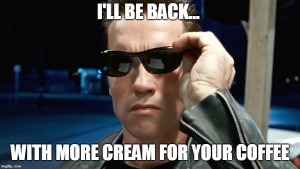When your humble blogger was a child, knee-high to a grass hopper, his big brother watched a show called X-Files, in which FBI agents Mulder and Scully investigated paranormal and unusual cases, ranging from “monster of the week” to the main plot involving interstellar aliens. I also watched this show and was a big fan.
The relatively recent re-boot also explores the paranormal, but it appears that the well for material is running low, and now the writers are shifting some of the attention to the “x-mod files.” The FBI has issued a call for victims to come forward and report their circumstances related polices purchased from American Labor Alliance or any of its subsidiaries.
The FBI is claiming that ALA was engaged in various forms of fraud. Back in 2016, the California Department of Insurance issued a Cease and Desist to American Labor Alliance/Agricultural Contracting Services Association, Inc.,/CompOne USA which called into question the validity of policies sold by those entities.
So, the stretch of a joke at the beginning of should be forgiven of course, but employers might benefit from verifying their policies are still valid.
As for the rest, perhaps a few California employers might find the policy they were relying on is not entirely valid, in which case the Uninsured Employers Benefit Trust Fund might find an uptick its workload.
Employers, especially in California, have it pretty hard all around – workers’ comp is expensive and the system is disruptive for day-to-day operations. Meanwhile, some employers undercut their competitors by illegally operating without insurance altogether.
As if Scylla and Charybdis were not enough, employers trying to do the right thing and carrying workers’ compensation insurance might also have to be worried about being left without coverage if their workers’ compensation policies were not valid to begin with.
As per the FBI notice, potential victims should reach out by calling 1-800-CALL-FBI or e-mailing WCVictims@fbi.gov.

